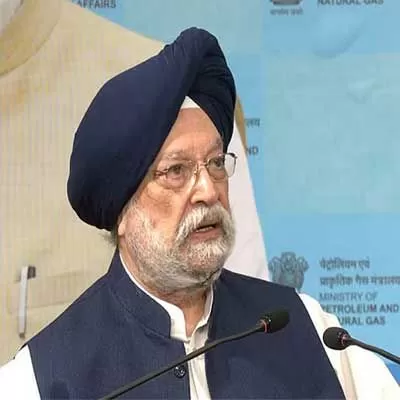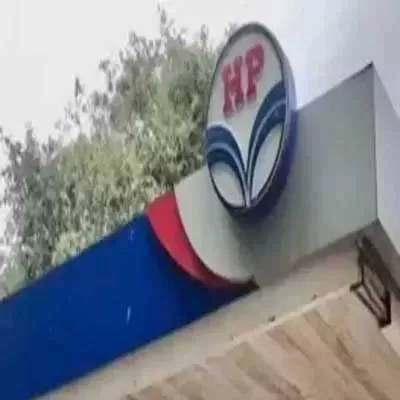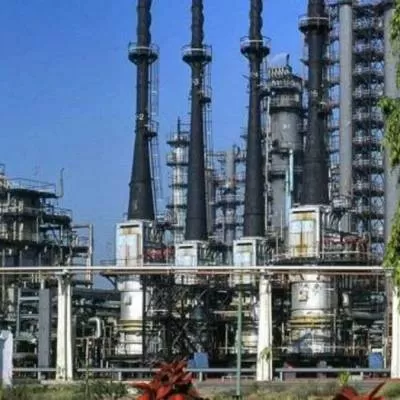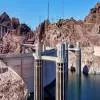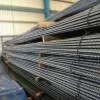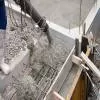- Home
- Infrastructure Energy
- OIL & GAS
- Mixed Geology, mixed Market

Mixed Geology, mixed Market
India’s mixed geology is driving the use of diverse tunnelling equipment as well as the launch of new products and services. <p></p> <p> Infrastructure development augurs well for the use of tunnelling and trenching equipment.</p> <p>'We are seeing continuous demand from clients for the complete range of Erkat products - drum cutters from the smallest model ER 50 for a mini 2-tonne excavator to the top-of-the-range ER 5500 for a large 120-tonne excavator and other models,'says <span style="font-weight: bold;">Tarun Kumar, Sales Manager-South Asia, Erkat India.</span></p> <p>'With so many projects in the pipeline in the transport sector, especially new and expansion metro lines in Delhi, Bangalore, Chennai, Lucknow, Jaipur, Hyderabad, Mumbai and Ahmedabad, highway tunnels, hydropower and irrigation tunnels, Robbins India sees huge potential growth,' opines <span style="font-weight: bold;">Kapil Bhati, Managing Director, Robbins Tunnelling and Trenchless Technology India.</span></p> <p>'We see great potential for our drilling jumbos in the upcoming hydropower sector, storage caverns, irrigation, rail and highways tunnels, metros, etc,' says <span style="font-weight: bold;">Tejash Modi, Manager Sales-Surface and UG Drills, Sandvik.</span></p> <p> <span style="font-weight: bold;">Differing geology, different machines</span><br /> With different regions in India presenting a differing geology, construction companies must equip and skill themselves according to the region, observes Jayan Nair, Manager, Coastal Projects. </p> <p>Tunnelling equipment for different geologies spans rotary drum cutters, drilling rigs and tunnel boring machines (TBMs), with certain machines being better suited to certain conditions. </p> <p>'While we have satisfactorily used Erkat rotary drum cutters in the semi-hard to loose geology in Manipur, we have deployed Atlas Copco hydraulic powered boomers to drill and blast in the hard rock in Himachal Pradesh and Sikkim,' reveals Nair. 'Nagaland presents medium hard rock. Hyderabad presents very hard rock.'</p> <p>'We use Erkat rotary drum cutters for very soft rock and where blasting is not allowed and, further, depending on the methodology designed by the client and the project geology, we use hydraulic drilling jumbos from Sandvik for tunnel excavation by the New Austrian Tunnelling Method (NATM) or TBMs from Robbins or Herrenknecht,' says <span style="font-weight: bold;">Mihir Mishra, Deputy General Manager, Afcons. '</span>We are pleased with the outcomes of all these machines.'</p> <p> <span style="font-weight: bold;">Drills versus TBMs</span><br /> Globally, the drill-and-blast method is considered one of the most economical and flexible ways to excavate rock for underground space, says Modi. 'Drilling jumbos used for drill and blast, or tunnelling by the NATM, are versatile and can progress in challenging underground rock conditions. They can tunnel through loose or cracked ground conditions as well as through very hard or homogeneous rock.'</p> <p>Meanwhile, TBMs can 'economically' work best through soil, soft or medium hard rock geology and ground conditions. Also, they are preferred over drilling and blasting for tunnelling in metros and highways planned below cities, to avoid blasting vibrations. That said, drill jumbos were also used for certain applications in the Delhi Metro over the TBMs, observes Modi. 'Also, drill jumbos perform better than TBMs when the tunnel has stiff gradient, sharp curves and a very large diameter such as caverns, and are useful to handle challenging geological conditions,' he adds.</p> <p> <span style="font-weight: bold;">Tunnelling in poor rock strata</span><br /> Rotary drum cutters (RDCs) are well suited for tunnel works where poor rock strata rules out drilling and blasting and the use of TBMs or road headers is economically not feasible. According to Kumar, 'Rotary drum cutters are best suited for soft to medium hard rock such as limestone, gypsum, sandstone, laterite, conglomerate, etc. However, in weathered, layered or fractured strata, these cutters perform equally well in hard rock.' </p> <p>Worldwide and in India, the RDC is Erkat's most sought-after attachment for enabling a variety of applications like tunnelling, trenching, underwater cutting, pile-head cutting, quarrying, cutting of old asphalt during road repair work, etc. In India, Afcons (among many others) has used four Erkat RDC units for tunnel excavation for its Jammu-Srinagar highway project. And Coastal Projects is using four machines for tunnel excavation as well as profiling and undercut removal work for its Northeast railway projects. 'In tunnel heading or profiling or scaling, the RDC works well with a rotation unit (ERC cutters) as the latter makes it easier for the RDC to follow the tunnel curvature,' explains Kumar.</p> <p> <span style="font-weight: bold;">Machines for mixed geology</span><br /> Having supplied four 10-m diameter and one 6.25-m hard rock TBMs for water transfer projects and for the Delhi Metro, Jaipur Metro, Chennai Metro's Package UAA-02 and Package UAA-08, Robbins India's experience is that its TBM performs best in Chennai's mixed-face geology.</p> <p>Now, to better cater to the mixed soil-rock geology encountered in many projects in India - especially the upcoming metros in Mumbai, Chennai Phase-II, Bangalore Phase-II, and certain hydro and water irrigation projects û Robbins has launched a crossover series of TBM. 'Our crossover series can work in a combination of mixed soils and rock respectively,' says Bhati. 'The XRE is a crossover rock and earth pressure TBM (EPB), the most common dual and hybrid machine with features of a single-shield, hard-rock machine and an EPB for efficient boring in mixed ground geologies. Other crossover TBMs are the XSE (a crossover between slurry or EPB) and the XRS (a crossover between rock and slurry).'</p> <p> <span style="font-weight: bold;">Rentals and operations</span><br /> In 2015, Robbins India started Bengaluru TBM operational services when it was asked to take over the operations of two competitor-manufactured EPB TBMs working on the Bangalore Metro Phase-I. 'We took over the responsibility for the underground operations in mixed geology consisting of soil, highly weathered granite and fresh granite,' says Bhati. 'Running the surface installations and equipment such as the grout batching plant, gantry cranes and power supply also fell on our team of over 60, including TBM operators, TBM technicians, ring builders, a grouting team and others, while the contractor Coastal Projects provided a team including surveyors, QC engineers and loco operators who reported directly to Robbins.'</p> <p>As for renting out tunnelling equipment, so far The Robbins Company does not offer TBMs on rent as each project has different geologies, and machines are custom-made for different projects as per the clients and geological requirements, Bhati adds. 'Long-term tunnelling infrastructure projects demand that equipment be bought and not rented,' says Nair. 'Fortunately, all sorts of globally used tunnelling equipment is now available in India.'</p> <p>Machine availability is not an issue, but operator availability is.<br /> 'A critical issue with tunnelling equipment in India is the lack of trained operators,' rues Mishra. 'We badly need formal courses to qualify personnel as operators.' Indeed.<br /> </p> <p><br /> </p> <p><span style="font-weight: bold;">QUICK BYTES</span><br /> </p> <ul> <li>Tunnelling equipment for different geologies spans rotary drum cutters, drilling rigs and TBMs.</li> <li> Drilling jumbos used for drill and blast, or tunnelling by the NATM, are versatile.</li> <li> TBMs preferred over drilling and blasting in metros and highways planned below cities. </li></ul><br /> <span style="font-weight: bold;">Better Trench with New Technologies and Customised Machines</span><br /> Contractors are still mostly using excavators and rock-breakers for trenching, says <span style="font-weight: bold;">Shantanu Sinha, CEO, Trenchless Toolbox,</span> who feels the easy availability of bucket excavators at low rental costs limits the interest in specialised trenching equipment. Investment in specialised trenching equipment is limited to micro-trenching and horizontal directional drilling (HDD) or trenchless technology, says Sinha. 'Micro-trenching facilitates the installation of utilities, especially along city roads, with minimal excavation, restoration cost and traffic disruption. Reliance Jio invested in 100 micro-trenching machines last year to lay fibre optic cable.'<br /> <p>Trenchless HDD machines are being used for the installation of optical fibres on long-distance national routes and, recently, for the installation of sewage pipelines for municipalities. According to Sinha, 'A market of roughly 500 new mid-size HDD machines arises each year, of which the bulk is being supplied by various Chinese manufacturers.'</p> <p>Trenchless horizontal directional drilling with heavy machines of 400-500 tonne is increasingly being used for the installation of oil and gas pipelines for crossing water bodies and existing transport infrastructure like a railway line or a highway, says Sinha. 'However, these users are restricted; a few specialised contractors working for companies like Assam Gas, Reliance, GAIL and Indian Oil, who have deployed the machines for GAIL for a 1.8-km crossing under the Godavari river in Andhra Pradesh, for Reliance to cross various rivers in western India for its Dahej to Nagorthane pipeline, and for Indian Oil to cross the Ganga in Bihar.'</p> <p>Trenching can be done with a rotary drum cutter, and this offers much better control on the trench width (compared to rock breakers) with little over-break, says Tarun Kumar, Sales Manager-South Asia, Erkat India. Vara Prasad, Site In-charge, Megha Infrastructure, engaged in trenching for a drinking water pipeline in Nellore, Andhra Pradesh, affirms, 'Trenching with an RDC helps achieve exactly the desired width, whereas with a rock-breaker you would end up with a 4-ft trench even where you need only a 2-ft one.'</p> <p>Besides, as the output with the RDC is much smaller in size as against what rock-breakers generate, the cut material is easily removable from the trench and can be reused for back-filling without screening or crushing, thus saving costs, points out Kumar. 'The machine easily and safely cuts under utilities or services crossing the trench.'</p> <p>Standard Erkat cutters can also work up to 30 m under water. HCC has used one such machine for underwater trench cutting at the Mumbai Naval Dockyard. Currently, Coastal Marine Construction & Engg Co is using such a machine for cutting an underwater trench off the coast of Gujarat near Dwaraka.</p> <p>Today, trenching machines can even be customised to suit the purpose. A customised trench cutting unit for cables from Erkat was made with a custom-made cutting wheel. 'We specially made this as per the client's requirement for use at Delhi and Chennai airports,' shares Kumar.</p> <p> <span style="font-weight: bold;">- Charu Bahri</span></p> <p> To share your views on the Tunnelling and Trenching market in India, write in at feedback@ConstructionWorld.in</p>


